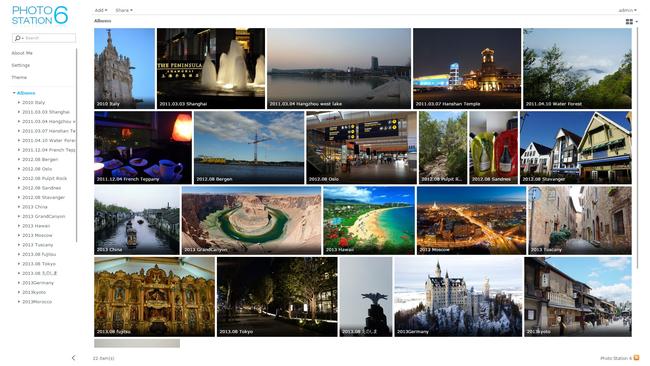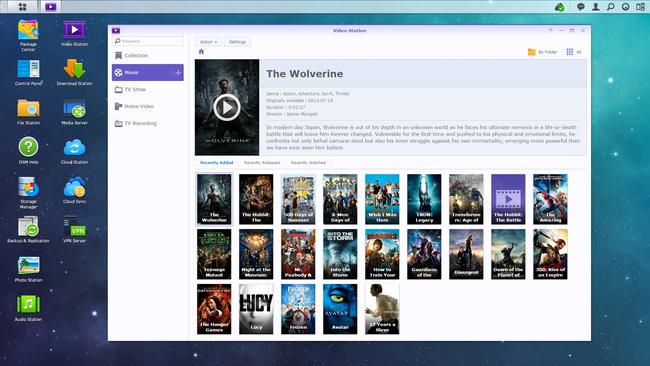Synology boxes expand function
Storing your digital information has never been easier and NAS heavyweight Synology is making the most of it.

NAS boxes are undergoing a quiet revolution and for storage maker Synology’s chief executive Alex Wang, it’s a case of bring it on.
NAS boxes, or network attached storage, traditionally store photos, videos and other files on your home network independently of any computer or mobile device. You decide what to store centrally and who can access them across the network.
But with more powerful processors being placed inside NAS boxes, they are transforming from storage devices into versatile, all-purpose always-on powerful computers locked in your cupboard.
We’re seeing more versatile NAS devices co-ordinate home security systems, host websites, run 24-7 BitTorrent clients, operate a centralised iTunes server, operate a storefront, and a personal or small business email service. They’re basically a Linux computer with easily removable hard drives.
The race is now on for NAS boxes to be an essential part of 4K TV home entertainment systems. Given 4K movies typically could be 100GB each, a NAS with a capacity to house several terabytes of media sounds like a good investment.
According to Mr Wang, Synology had NAS boxes that could store vast libraries of 4K movie content, but also transcode them in real time so they could be viewed on a variety of devices. One option would be to stream 4K directly to a Samsung smart TV using Synology’s Video Station app.
“There is now more and more 4K content, it’s not really popular yet, but it will be in the future,” Mr Wang told The Australian. “We want to prepare for that, we already can transcode 4K into different formats.”
The company’s new consumer oriented DiskStation DS216+ and more business focused DS716+ offer that 4K streaming/transcoding capability.

“Previously we could only transfer files out to the TV, if the TV didn’t support the file format, you couldn’t watch it. But nowadays with a powerful CPU inside, we can do transcoding and convert a video to different formats that can be supported by your device.” That includes transcoding and streaming to connected phones, tablets and laptops.
Apps such as Plex also offer streaming of movie content, but Synology has been using the hardware-accelerated video transcoding. The company is now going one step further, by including full TV support in its app repertoire — a TV guide, in-built TV recording and playback.
The elements are already present in its current DiskStation manager operating system. But the company is revamping it to resemble a full personal video recorder run through a NAS.
One development is a new app to make this functionality available on a living room TV through Apple TV. It will debut in coming months.
Apart from TV, Mr Wang sees a big future for NAS boxes as private cloud storage, given concern about cloud security and the storing of personal data in overseas data centres. “Unlike public storage solutions, the files are not stored in data centres across the globe. All the files are stored in your NAS. It’s more secure in this way,” he said. Users access them through the DS Cloud app.
Taiwan has developed a reputation for making high-end NAS devices. Synology, along with rivals Asustor and QNAP, make many of the world’s most advanced NAS boxes.
“In Taiwan we have many good software engineers, and many good power companies there, and many different component companies in Taiwan as well. We produce all of our hardware in Taiwan, and we can hire the best software engineers from the best universities in Taiwan.”
Synology was formed in 2000 by two former Microsoft employees Cheen Liao and Philip Wong. “We started as a software company making operating systems for storage servers,” Mr Wang said. “Then we realised that if we had more control over the hardware we could offer better innovation, better functionality so we started to make our own hardware in year 2004.”
He said there were about 3.2 million consumer and business oriented Synology devices deployed worldwide.




To join the conversation, please log in. Don't have an account? Register
Join the conversation, you are commenting as Logout